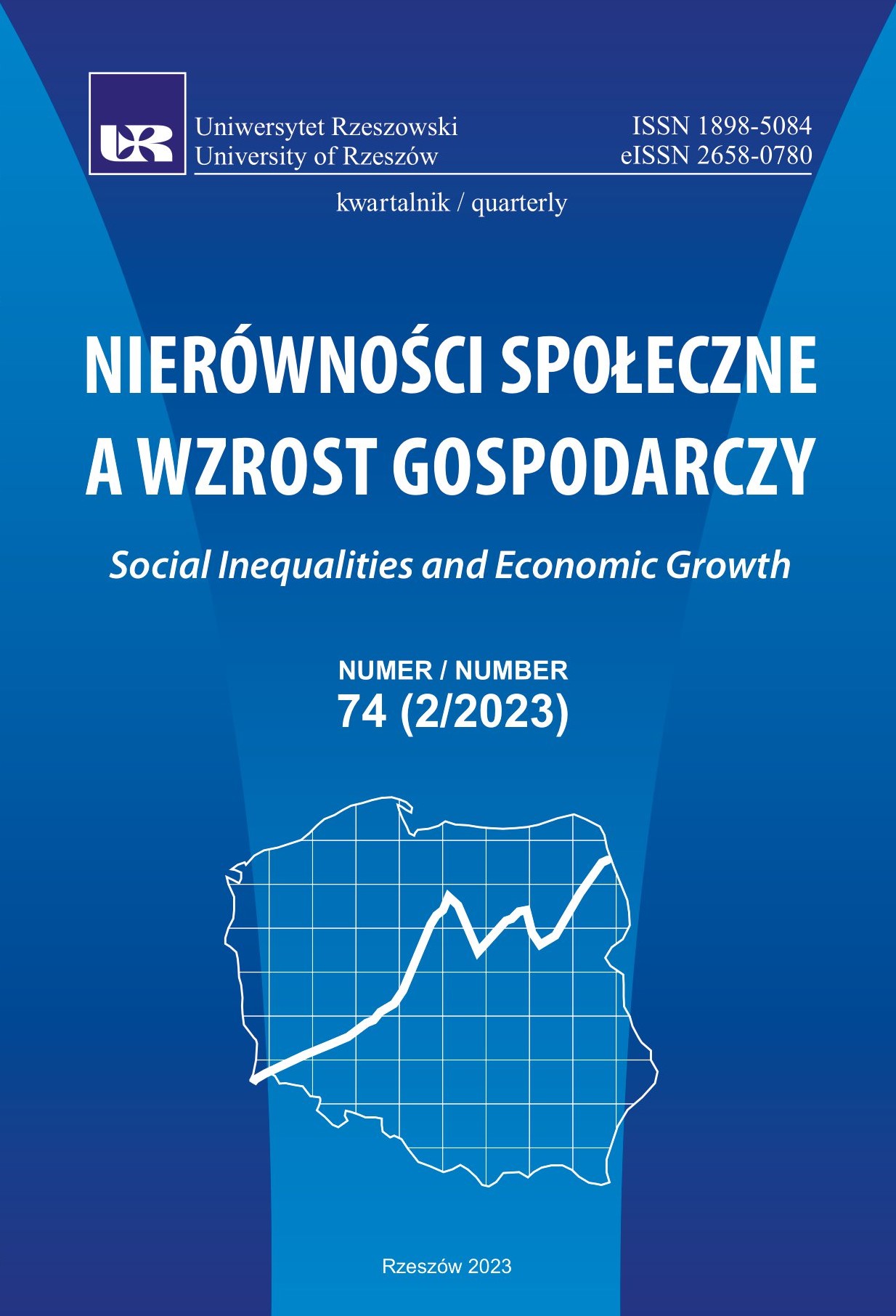Ecological security in an extended security domain
DOI:
https://doi.org/10.15584/nsawg.2023.2.2Keywords:
ecological security, national security, ecological crisisAbstract
Ecological security is an integral area of research and practical activities within national and international security. The system change that occurred after the breakdown of the bipolar system has caused increasing interest in non-military areas of security. It has converged on an increasing ecological awareness, which is connected with the growing ecological crisis. This crisis has a multifaceted character and considers both the natural environment as well as the economic, social and political dimensions. Ecological threats come not only from the sphere of nature but also increasingly result from human actions. Especially worrying are the results of irresponsible human activities and some nations which are motivated in a careless way by the willingness to achieve shortterm benefits and resort to ecological violence. The results of this are painfully felt both by nature and by mankind itself, especially by the local communities that are more directly exposed to the harmful effects of these actions. Within international and national initiatives, one can observe more and more activities that result in legal acts classified as so-called soft laws and cause changes both in an institutional scope and in the level of public awareness. The aim of the article is to point out the increasing importance of ecological security in the security discourse and to take into account the interdisciplinary approach. The assumption has been made about the dominant role of the state in the security architecture on the basis of the analysis of literature sources. The article has paid attention to the necessity for active ecological politics of the state and the necessity of changing the approach
to the process of management by referring to the socioeconomic approach of ecological economics. The change that gives hope for reversing the self-destruction of mankind requires a reorientation of thinking about the management process. It should have a character of activities focused around the integrated security concept (the superior needs and values are persistence, survival and human development in harmony with the surroundings by maintaining the primality of anthropocentrism).
Downloads
References
Barnett, J. (2010). Environmental Security. W: A. Collins (red.), Contemporary Security Studies (s. 236–239). Oxford: Oxford University Press.
Bartkowiak, R. (2013). Ekonomia rozwoju. Warszawa: PWE.
Brauch, H.G. (2008). Conceptualising the Environmental Dimension of Human Security in the UN. International Social Science Journal, 59, 19–48. DOI: 10.1111/j.1468-2451.2008.00631.x.
Ciechanowicz-McLean, J. (red.). (2011). Leksykon ochrony środowiska. Warszawa: Wyd. C.H. Beck.
Czajka, S., Becla, A. (2007). Ekologiczne podstawy procesów gospodarowania. Wrocław: Wydawnictwo Akademii Ekonomicznej we Wrocławiu.
Czaputowicz, J. (2012). Bezpieczeństwo międzynarodowe. Współczesne koncepcje. Warszawa: PWN.
Dobrzańska, B., Dobrzański, G., Kiełczewski, D. (2009). Ochrona środowiska przyrodniczego. Warszawa: PWN.
Haliżak, E. (1997). Ekonomiczny wymiar bezpieczeństwa narodowego i międzynarodowego. W: D.B. Bobrow, E. Haliżak, R. Zięba (red.), Bezpieczeństwo narodowe i międzynarodowe u schyłku XX wieku (s. 125–148). Warszawa: Scholar.
Izdebski, H. (2017). Doktryny polityczno-prawne. Fundamenty współczesnych państw. Warszawa: Wolters Kluwer.
Księżopolski, K.M. (2016). Bezpieczeństwo ekonomiczne – przedmiot badań i praktyka. W: M. Gębska, M. Kubiak (red.), Współczesne bezpieczeństwo ekonomiczne. Wymiar międzynarodowy (s. 9–25). Warszawa: Akademia Sztuki Wojennej.
Leguto-Kobus, P., Jastrzębowska, E. (2011). Bezpieczeństwo a ochrona środowiska przyrodniczego. W: K. Żukrowska (red.), Bezpieczeństwo międzynarodowe. Przegląd aktualnego stanu (s. 427–451). Warszawa: Wyd. IUSatTAX.
Piekarska, A. (red.). (2018). Pomyśleć ekonomię od nowa. Przewodnik po głównych nurtach ekonomii heterodoksyjnej. Poznań: Heterodox.
Soroka, P. (2009). Strategia bezpieczeństwa zewnętrznego Polski. Proces formułowania. Warszawa: Aspra.
Spash, C.L., Asara, V. (2018). Ekonomia ekologiczna, między naturą a społeczeństwem W: A. Piekarska (red.) Pomyśleć ekonomię od nowa. Przewodnik po głównych nurtach ekonomii heterodoksyjnej (s. 195–210). Poznań; Heterodox.
Wilkin, J. (2015). Ekonomia wolności i ekonomia zniewolenia. Kiedy ekonomia sprzyja poszerzaniu ludzkiej wolności, a kiedy ją ogranicza? W: E. Mączyńska (red.), Modele ustroju społeczno-gospodarczego. Kontrowersje i dylematy (s. 19–30). Warszawa: Polskie Towarzystwo Ekonomiczne.
Downloads
Published
How to Cite
Issue
Section
License
Copyright (c) 2023 University of Rzeszow

This work is licensed under a Creative Commons Attribution-ShareAlike 4.0 International License.


